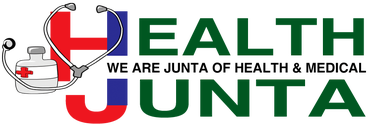What Is Left Arm Pain?
Are you Experiencing pain in your left arm? Would you like to know the reason for this pain? Well, sometimes this pain may be temporarily and for all the right reasons such as knocks or injuries.
But at other times, the pains might be a signal of incoming heart attack and should therefore not be overlooked or ignored. This article highlights the various causes of left arm pains and the effective ways through which these causes can be differentiated.
Of course, it does not necessary mean that aching of the left arm always relates to a heart disorder. There are many other causes of this particular pain, some of which you may not be aware of.
The extent of the pain may vary from a minor muscle sprain to a shooting or sharp pain of heart attack. That said, it is nearly impossible to tell the cause of pain in the left arm unless you seek a doctor’s opinion after blood and ECG examinations.
Among the different causes of pain in the left arm, the heart-related pain remains the serious one of them all. To be safe and to prevent the risk of a heart attack, never ignore a pain in your left arm. In case you experience recurring pains, seek medical checkup immediately.

Symptoms
Arm pains can be as a result of various problems ranging from compressed nerves to joint injuries. Depending on the cause, arm pain may develop immediately or after some time.
In most instances, arm pain originates from the upper region of the spine or neck. Sharp and quick pains, especially in the left arm may even be a sign of a heart attack.
Causes
Here are some of the many reasons you may be experiencing pain in your left arm, including the different symptoms and complications such as arthritis and other chronic diseases. From a simple sprain of the muscle to a massive heart attack, here are the possible causes of left arm pain.
Heart Attack
When blood flow to the heart is stopped by either a clot formation or a rupture in the coronary artery, the muscles in the left arm quickly become damaged and may cause sharp pain. Without proper care and treatment, the heart may start to die.
Some additional symptoms of the attack include:
- Pains in the neck, back, jaw, or shoulders.
- Nausea and vomiting
- Lack of breath
- Chest pain and pressure
- Fatigue
- Fainting and lightheadedness
- Breaking out during the cold seasons
According to a person’s immune system, other intense symptoms may or may not appear. In other cases, the symptoms come and go and may be mild as in the case of indigestion.
Angina
Angina is the sign of the coronary heart disorder. It means that your muscle cells are not supplied with enough oxygen-rich blood. Angina causes symptoms similar to those of a heart attack, but only lasts for a short duration. In most cases, it worsens when active, and be becomes better while at rest.
Broken or Fractured Bone
Sometimes, there is no outward pain to signal that you have a fracture or broken your bone in your arm or wrist. A fracture or broken bone in your arm can only cause pain during locomotion.
Other symptoms include numbness and swelling of the arms. In essence, it is possible to have broken or fractured bones in your wrists and arms, but still, fail to notice them due to less pain.
Bursitis
Bursa refers to the fluid-filled sac between the bone and the moving parts of a certain joint. When this fluid becomes inflamed, it is called bursitis.
The risk of acquiring bursitis increases with age and is often evidenced in the shoulder region due to repetitive movements. The pain further increases when you lay on your arm or shoulder, and this limits the rotation of the shoulder. Other associated symptoms include tingling and burning.
Herniated disk
Disks are the pads adjoining the spinal column to the bones. They are the shock absorbers of the spine. A herniated disk is that which has ruptured and is pressing onto the nerve cells. It causes numbness, tingling or burning effect. A pain starting from the neck to the shoulders, and finally into your arms may be felt. The pain increases when you move too much.
Vascular Thoracic Outlet Syndrome
This condition occurs when the blood transporting vessels under beneath the collarbone become compressed or weighed down upon due to continued injuries. If left unattended, they can lead to progressive damage of the nerve cells.
The condition can cause tingling, numbness, and weakness of the arm. In some instances, the arm may swell. Other symptoms include a weak pulse, cold hands or arms, and discoloration of the hands.
Cervical Radiculopathy, or Pinched Nerve
A pinched nerve is that which has been inflamed or compressed. This can be as a result of wear and tear injury or from a simple trauma. The symptoms accompanying this disorder are similar to those of herniated disk and may include numbness and a burning or tingling sensation in your left arm. The pain increases when you move.
Other disorders include:
- Rotator Cuff tear
- Sprains and strains
- Tendinitis
Diagnosis And Treatment
If you are suffering from a heart disease, treatment may include symptoms relief, medication, and physical therapy. If the heart disease is a severe one, surgery is the only remaining effective method that can bypass the blocked arteries.
Broken or fractured bones must be taken care of and immobilized to heal. In most cases, a cast is used to support the arm. Bones that are severely broken can only be treated through surgery.
For strains and sprains, icing and bandaging on a daily basis can be essential in restoring your arm or wrist to normal.
For all the above disorders, physical therapy has proven an efficient treatment plan. In severe cases, surgery and corticosteroids are necessary.
Out Look
If you are experiencing left arm pain due to a heart attack, then a long-term treatment plan is best suited for you. More often than not, arm pain resulting due to injuries will heal by themselves.
However, shoulder problems may persist and progressively get worse, if this happens, then seek a doctor’s opinion. In essence, the best remedy is only given by a physician.
The reason for writing this article is to discuss common experiences with regard to left arm pain with more emphasis on heart-related pains as they are the most lethal and act as warning signs against potential heart attacks.
If you experience sudden pains in the left arm without any associated injury, it should be taken as a heart attack pain that needs immediate checkup.
When To Visit A Doctor?
Not all cases of arm pains are associated with heart attack. In some instances, it may just be as a result of poor posture while sleeping or just sign of a different disease.
However, you should seek medical advice whenever the pain is sharp and sudden and is accompanied by a feeling of pressuring, squeezing, and fullness of the chest as it may be a signal of a potential heart attack.
References
- Heart attack. National Heart, Lung, and Blood Institute. http://www.nhlbi.nih.gov/health/health-topics/topics/heartattack/. Accessed Jan. 16, 2016.
- Henderson MC, et al., eds. Arm and hand pain. In: The Patient History: An Evidence-Based Approach to Differential Diagnosis. New York, N.Y.: The McGraw-Hill Companies; 2012. http://accessmedicine.com. Accessed Jan. 16, 2016.
- LaDou J, et al., eds. Shoulder, elbow, & hand injuries. In: Current Diagnosis & Treatment: Occupational & Environmental Medicine. 5th ed. New York, N.Y.: The McGraw-Hill Companies; 2013. http://accessmedicine. com. Accessed Jan. 16, 2016.
- McMahon SB, et al., eds. Non-specific arm pain. In: Wall & Melzack’s Textbook of Pain. 6th ed. Philadelphia, Pa.; Saunders Elsevier: 2013. http://www.clinicalkey.com. Accessed Jan. 6, 2016.
- Sprains, strains and other soft tissue injuries. American Academy of Orthopaedic Surgeons. http://orthoinfo.aaos.org/topic.cfm?topic=A00111. Accessed Jan. 16, 2016.
